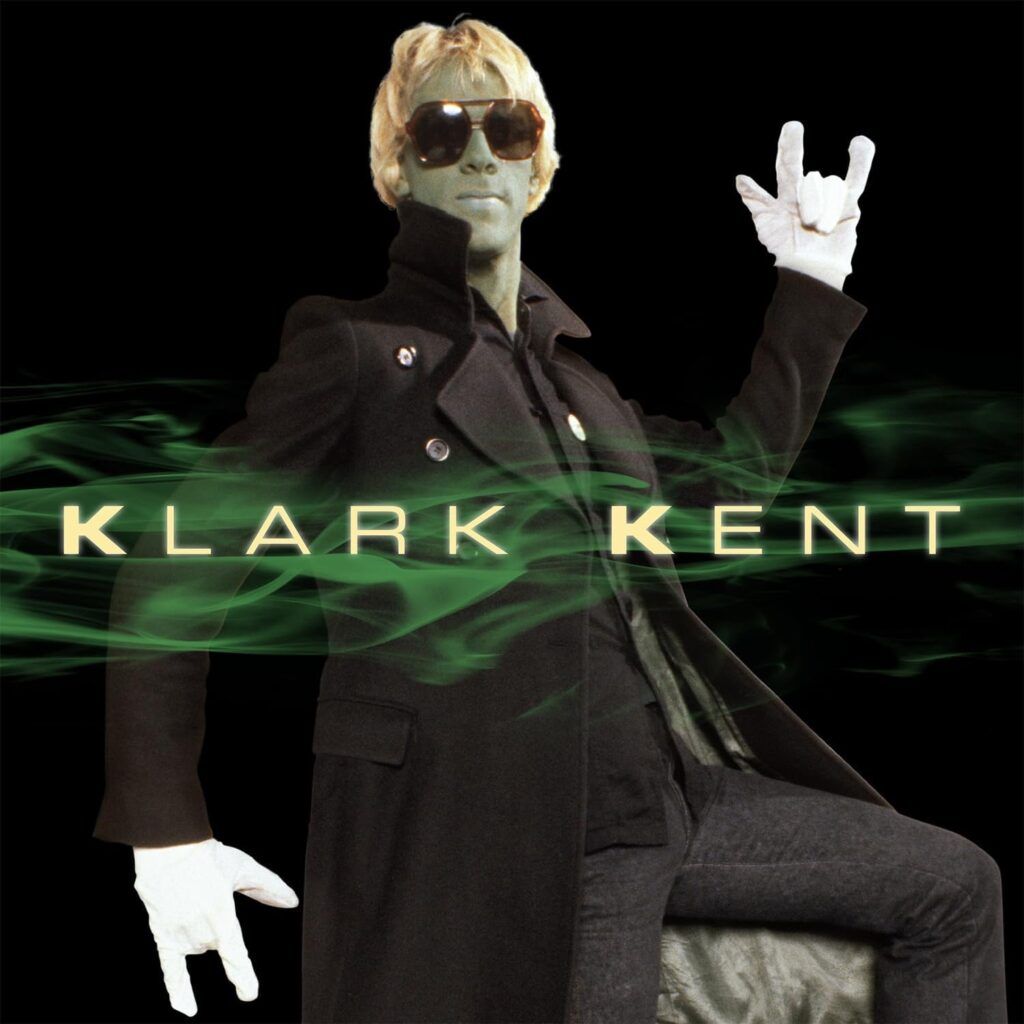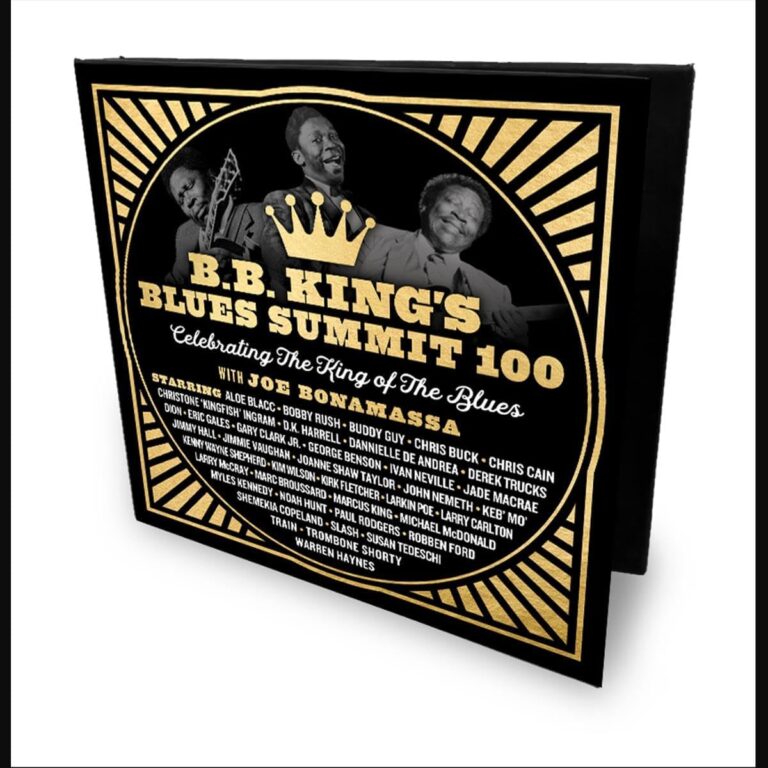
A major creative force, Stewart Copeland could easily have lived with (and off) The Police, and never produced another note. However, as Klark Kent shows, Copeland had ambitions beyond the relatively straightforward band with which he made his name and, by 1978, he was wearing a mask and releasing music under a pseudonym. The result is a wilfully idiosyncratic mish mash of post punk and new wave and, listening to this collection, you can clearly see he was mapping out the path that would lead to his subsequent soundtrack work – not least for computer games like Spyro The Dragon. Yet, while there’s a sense of fun here that is often irresistible, it is the product of an era that, while excessive in many respects, still lived in the looming shadow of nuclear war. As a result, the music and lyrics do not always align, and there are moments of seriousness to Klark Kent that keep it from becoming self-indulgent, no matter how atypical the music might be.
The package
Available on double CD and double vinyl, this excellent new collection provides a comprehensive overview of Copeland’s early solo work. The vinyl edition, and disc one of the two-CD set, gathers newly remastered versions of the Klark Kent singles, the full self-titled album, and two previously unreleased studio recordings – representing the complete studio output of the project
Disc two of the CD set, meanwhile, adds twelve demo tracks and these, alongside some basic-yet-appreciated liner notes, provide further background to the innovative music Copeland created.
For fans of Klark Kent, or for those looking to explore a side of The Police they’ve hitherto missed, both sets offer a compelling overview of Klark Kent’s output, and are worth exploring. However, as much as I generally prefer to focus on vinyl, the CD version is arguably the definitive presentation, thanks to both the additional tracks and to the selection of liner notes included in the package.
Disc 1 / Vinyl edition
For the uninitiated, opening track It’s Gonna Rain sets the tone for the collection. Bizarre vocals, sung straight but lyrically oddball, set to a slow-paced mishmash of art rock guitar and over-the-top percussion, it’s like someone filtered Ace Frehley’s new wave solo album through Martin Bisi’s Ciccone Youth production, and it’s easy to imagine a young Gibby Haynes making notes. Next, we enter into the self-titled album, which kicks off with the new wave Don’t Care – a track that sounds like a well-intentioned Police parody, played at 45 rather than 33. That Sting and Andy Summers showed up wearing masks to help Stewart play the track on Top of the Pops only goes to show the support the project had within the band. Next up, Away From Home lays much of the blueprint for Brit Pop’s more eccentric elements, as does Rich In A Ditch – both tracks that share sonic space with the likes of early Blur and Elastica.
Things continue to slip sideways through Copeland’s madcap imagination on the instrumental Grandiloquent, arguably the clearest indicator of his future soundtrack work. With its calypso percussion, reggae influence and nimble guitar work, it’s a surprisingly engaging piece of music that treads a fine line between fantastic and ridiculous, Copeland emerging unscathed to dig into darker territory with Guerilla – a track which sits somewhere along the chain of inspiration that David Bowie explored with Yassassin. Next up Old School is a rattling New Wave rocker, while Excesses and Kinetic Ritual conclude the original album portion of this collection, the latter an instrumental boasting all sorts of unconventional instrumentation, including something that sounds suspiciously like a kazoo.
Next up, we get a range of non-album singles. First, the frantic Thrills has a punkish pulse to it, and the whole thing is delivered at breakneck speed as Copeland sings “I feel great, stay out late, I can’t wait” – crafting a potential teenage anthem that, while sadly overlooked, is reminiscent of The Undertones. The twitchy Office Girls, with its sound of a cash drawer, has a reggae influence to it, once again sounding like The Police (had they had had a prolific supply of acid on hand). Then there’s Too Kool to Kalypso, which is annoyingly addictive, despite its bizarro-lyrics. In contrast, Stay Ready, with its drum machine and synths, taps once again into a similar vein to the one located by Ciccone Youth some years later. Also heavily influenced by the burgeoning synth movement of the period is Strange Things Happen, which is another track that points to Stewart’s ability to create the sort of kooky music that would become so popular in console games in the mid 90s.
The final few tracks are a mixed bag. Love Lessons has foolish lyrics and a simplistic, punky backing; Yo Ho Ho is one of the few Christmas songs worth hearing, providing a neat antidote to the awfulness of Cliff Richard. Perhaps for that very reason it’s never made it (as far as I know) onto any Christmas compilation, which is a shame. With the CD nearing its end, Someone Else is a highlight that pretty much epitomises the appeal of new wave in 5 easy minutes. It leaves the lengthy, and rather odd, Office Talk – with its found sound discussions – to see the record out.
Conclusions (Disc 1 / Vinyl)
It’s difficult to imagine a major recording artist taking such a leap into the unknown today as Stewart Copeland did with Klark Kent, and it’s a testament to the rampant innovation of the late 70s / early 80s that Copelands was not only able to do this, but that he charted in the process. With tracks that positively fizz with imagination, you can feel Copeland’s pull on any number of art rock and indie bands that emerged in the 90s, and there are tracks here that would not sound out of place on a Sonic Youth, Pavement, or Butthole Surfers’ LP. Best of all, while it’s played with a sense of flair and fun, there’s no sense of self-consciousness at work, and you can hear in these 18 tracks the same twinkle that led Copeland to such success as a film and computer game composer. While it’s easy to consider this musical Marmite, for those who want to hear something wilfully creative and brightly entertaining, Klark Kent has aged spectacularly well, and is worth exploring. 8/10
Disc 2 (CD Set Only)
While the vinyl edition is lovely, there’s something special about hearing these pieces in their formative state. The early version of Away From Home, for example, is mired in distortion and could easily slip into albums by Violent Femmes or Flaming Lips, the whimsical musical backdrop sounding gloriously at odds with Copeland’s disaffected vocal. The bulk of what follows is instrumental, with Rich in a Ditch offering a wonderfully overamped bassline and a ridiculous calypso beat. Grandiloquent is another track that showcases Copeland’s idiosyncratic guitar playing, while the spacy panning (which allows the multiple Kents to “leap from side to side in your mind”) adds to the fun. Similarly, Guerilla is worth hearing, not least because this instrumental version makes you realise both how rough and ready Klark Kent is, and how much the “band” served to lay the blueprint for any number of indie / lo fi acts that followed. Then there’s Excesses, which is one of the few demos to feature vocals.
Following a particularly scrappy Theme For Kinetic Ritual, the nascent Don’t Care actually sits very close to the final version, with harmony vocals and cooler-than-thou demeanour fully in place. The comically fast Thrills is a rush in whatever version, but the tempo fortunately regains its composure on Office Girls, even if the beat does sound suspiciously like the demo track inexplicably included on all Casio keyboards. There’s some ace guitar here, likely recorded and sped up a la Away From Home, giving it a cartoonish vibe that is strangely endearing, although the cut off at the end is somewhat abrupt. Goofy by Klark’s own admission, Too Kool For Kalypso doesn’t quite have the panache of the studio version, although the arbitrary sound effects are fun. It leaves Strange Things Happen to see the demo disc out and, like its studio counterpart, it’s easy to imagine this providing the backing to some colourful computer game.
Not all demo discs are worth repeat visits, but the selection here are actually pretty well recorded and shed further light on Klark Kent’s wonderfully atypical sound. Drawing from a range of influences, and with character already firmly intact, it’s clear that Stewart Copeland invested time and care into the creation of Klark and, as history now records, it was a more than worthwhile endeavour.



